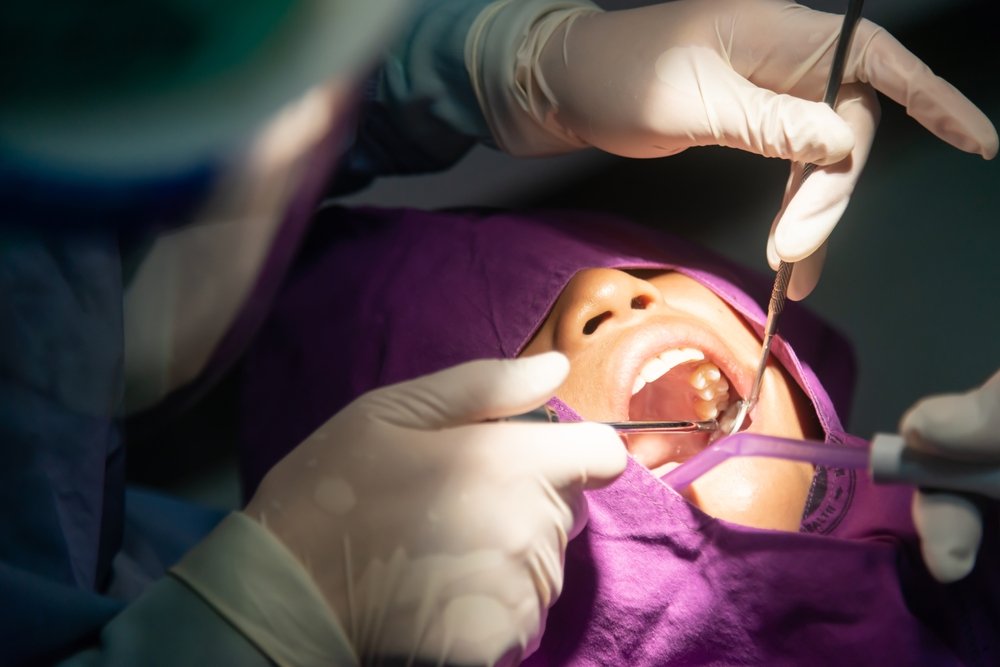Dental Extractions
Dental Extractions and Minor Surgical Procedures
What Are Dental Extractions and Minor Surgical Procedures?
- Dental Extractions: The removal of a tooth that is damaged, decayed, or causing crowding to protect the health of the surrounding teeth and gums.
- Minor Surgical Procedures: These include procedures such as removing impacted teeth (like wisdom teeth), treating gum infections, or correcting other oral conditions.
When is a Dental Extraction Necessary?
You may require a tooth extraction if:
- A tooth is severely decayed or damaged beyond repair.
- There is an infection or abscess that cannot be treated with a root canal.
- Wisdom teeth are impacted or causing crowding.
- Orthodontic treatment requires tooth removal to create space.
- Baby teeth are not falling out in time for permanent teeth to emerge.
Common Minor Surgical Procedures We Offer
- Wisdom Tooth Removal
Safe and effective extraction of impacted or problematic wisdom teeth. - Surgical Extraction
Removal of broken or partially erupted teeth requiring surgical intervention. - Treatment of Oral Infections
Minor surgeries to drain abscesses or remove infected tissue. - Frenectomy
A minor surgical procedure to correct tongue-tie or lip-tie conditions. - Biopsy of Oral Lesions
Removal of suspicious oral tissue for diagnosis and treatment planning.

Post-Procedure Care
- Consultation and Examination Your dentist will assess your condition through an oral examination and X-rays to determine the best treatment approach.
- Anesthesia Local anesthesia is administered to ensure the area is completely numb, making the procedure pain-free.
- Extraction or Surgery The tooth is gently removed, or the minor surgical procedure is performed with precision and care.
- Post-Procedure Care You’ll receive detailed aftercare instructions to promote healing and manage any discomfort.
Benefits of Choosing Dr. Ladhe’s Oracare Dental Clinic
- Experienced Professionals
Our team has extensive expertise in performing extractions and minor surgical procedures. - Advanced Technology
We use modern tools and techniques to ensure safe and efficient treatments. - Patient Comfort
We prioritize your comfort and offer a calm, pain-free experience. - Comprehensive Aftercare
We provide clear post-treatment guidance and follow-up care for a smooth recovery.
Recovery and Aftercare
- Bite gently on the gauze provided to stop bleeding.
- Avoid eating or drinking hot or spicy foods for 24 hours.
- Use cold compresses to reduce swelling.
- Take prescribed medications as directed.
- Avoid smoking or using straws, as they can disrupt healing.
Why Choose Dr. Ladhe’s Oracare Dental Clinic?
As a trusted dental clinic in Dombivli, Dr. Ladhe’s Oracare Dental Clinic is dedicated to providing gentle, professional care tailored to your needs. From simple extractions to complex minor surgical procedures, we ensure a safe and comfortable experience every step of the way.
Whether you need a tooth extraction or minor oral surgery, trust Dr. Ladhe’s Oracare Dental Clinic for expert care. Call us today to schedule an appointment and take the first step toward better oral health!
FAQs
Q1: When is a tooth extraction necessary?
Tooth extraction is necessary when a tooth is severely decayed, damaged, or infected beyond repair, or if it causes overcrowding, impaction, or orthodontic issues.
Q3: How long does it take to recover from a tooth extraction?
A: Recovery typically takes 7-10 days, depending on the complexity of the extraction. Following the aftercare instructions provided by our team will help ensure a smooth recovery.
Q5: What are minor surgical procedures in dentistry?
Minor surgical procedures include wisdom tooth extractions, frenectomy (for tongue-tie or lip-tie), gum surgeries, biopsies of oral lesions, and treatments for infections like abscess drainage.
Q7: What are the risks of a tooth extraction?
Tooth extractions are generally safe, but like any procedure, they carry minimal risks such as dry socket, infection, or prolonged bleeding. Our team ensures the procedure is performed with utmost care to minimize risks.
Q9: Can children undergo tooth extractions or minor surgeries?
Yes, children can safely undergo these procedures when necessary, such as for stubborn baby teeth or orthodontic reasons. Our team ensures a gentle and child-friendly approach.
Q11: What foods can I eat after a tooth extraction or surgery?
Stick to soft, non-spicy foods like yogurt, mashed potatoes, soup, or smoothies for the first few days. Avoid hot, hard, or chewy foods.
Q2: Is a tooth extraction painful?
No, the procedure is performed under local anesthesia to numb the area completely, ensuring a pain-free experience. You may feel slight pressure, but no pain during the extraction.
Q4: What is an impacted tooth, and why does it need removal?
An impacted tooth is a tooth that does not fully erupt or is stuck in the gum or bone. Impacted teeth, especially wisdom teeth, can cause pain, infection, or misalignment and may require removal.
Q6: How should I prepare for a dental extraction or surgery?
A: Follow your dentist’s instructions, which may include avoiding food or drink for a few hours before the procedure and informing us about any medications or medical conditions.
Q8: What is dry socket, and how can it be prevented?
Dry socket occurs when the blood clot at the extraction site dislodges, exposing the bone and nerves. It can be prevented by avoiding smoking, using straws, or vigorous rinsing after the procedure.
Q10: Will I need antibiotics after a tooth extraction or surgery?
Antibiotics may be prescribed if there’s a risk of infection or if you have an existing condition that makes you prone to infections. Your dentist will advise based on your case.
Q12: How can I book an appointment for dental extraction or surgery?
A: Simply call Dr. Ladhe’s Oracare Clinic in Dombivli or visit us to schedule a consultation. Our team will guide you through the process and answer all your questions.
